This display offers representative selection of scholarly publications spanning the institute's history from its inception to the present day. This curated collection showcases the contributions of Orientalist scholars through a range of books covering various studies. While the selection is not driven by any specific criteria, it encompasses publications that have left a significant impact, received accolades, and reflect the institution's evolution in a century. This exhibition not only celebrates the academic achievements of the Oriental Institute but also highlights the relevance of these scholarly works in the context of the institute's 100-year journey.
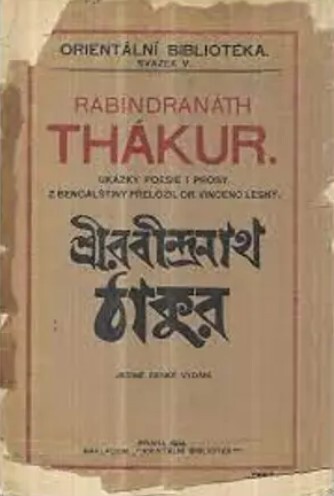
Rabindranath Thakur : Ukázky poesie a prosy
Vincenc Lesný first published book, "Rabindranath Thakur: Ukázky poesie a prosy," book represents an eloquent translation of the profound and evocative writings of Rabindranath Tagore from their original Bengali form into Czech. Lesny's translation captures the essence of Tagore's works, making them accessible to Czech-speaking audiences and opening a gateway to the rich literary heritage of Bengal. This book shows the enduring power of literature in bridging cultures and fostering a deeper appreciation of the human experience across borders.
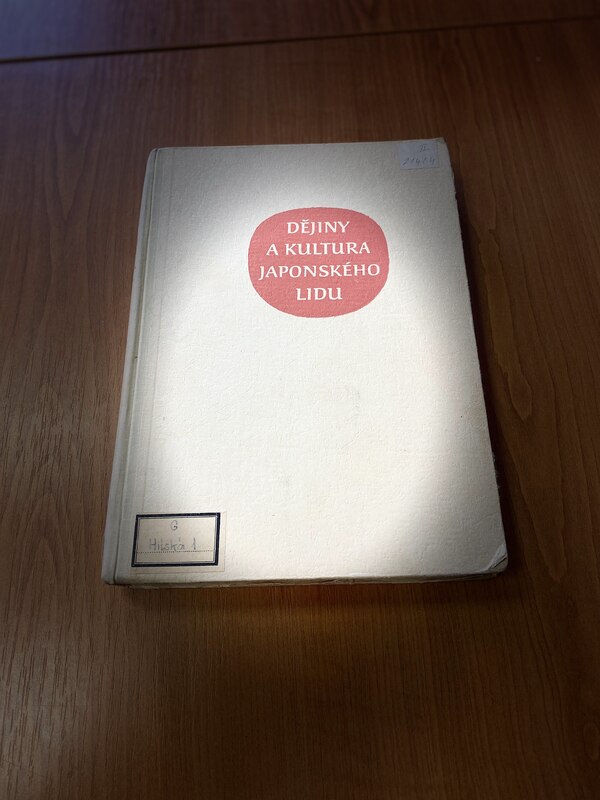
Dějiny a kultura japonského lidu
Vlasta Hilská’s book shares the depth of knowledge about Japan showcasing her expertise as Japanese philologist, historian, and advocate for Japanese culture. This scholarly work presents a comprehensive panorama of Japan's social, political, and cultural history. Beginning with a concise geographical overview and an examination of Japan's earliest monuments, the book delves into various historical periods, offering insights into the Japanese feudal system, the country's colonial expansion, and its industrialization. It also chronicles the Japanese people's struggles against exploitation and meticulously traces the evolution of Japanese cultural life. Before World War II when she embarked on an independent voyage to Japan, it is in this voyage where she crafted a Japanese language textbook and authored several books solidifying her reputation as an authority on Japanese culture and history.
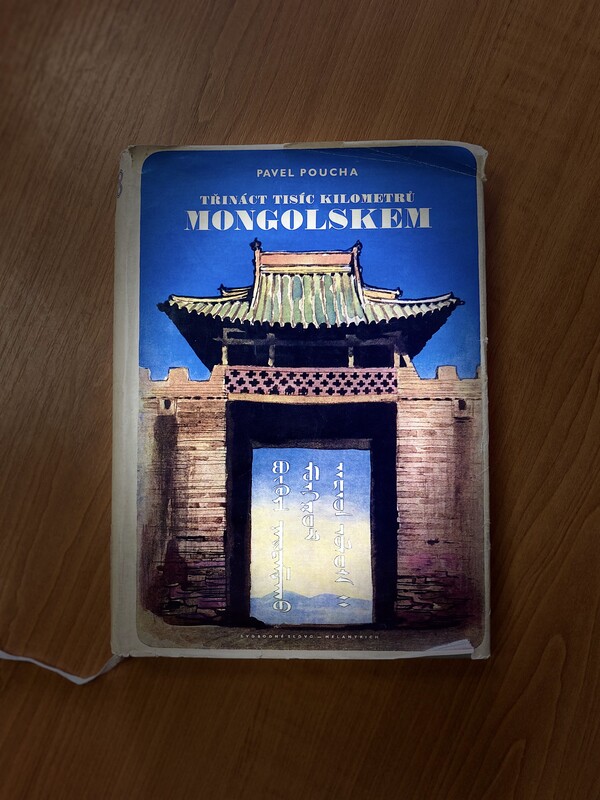
Třináct tisíc kilometrů Mongolskem
This work of Orientalist Pavel Poucha who focused s on Inner Asian philology, Mongolist, Tibetologist and Indologist and the founder of Czech Tocharistics, Tibetology and Mongolistics in Czech Republic. While he achieved his greatest fame in Mongol studies, for his research of its classical and modern language, literature and history, he is also known as the author of travel books from Mongolia and China where he went on a one-year stay in China and Mongolia in 1957. This book is a well-written and interesting travelogue depicting a long journey through the Mongolian People's Republic.

631 dní v Barmě
This book serves as both a travelogue and a window into the heart of Burma, offering readers a richer understanding of this intriguing and enigmatic nation. In this book, Dagmar Beckova and Jan Becka share a captivating exploration of Burma (now Myanmar) through their own eyes as Orientalists. During their study stay at a university in Rangoon and their travels to other significant cultural and economic centers of the country, the authors delved deep into the life, history, culture, religion, and natural beauty of a nation that was relatively unfamiliar in their homeland. In this book, they meticulously distilled their observations, experiences, and insights into chapters that not only narrate their journey but also seek to elucidate the underpinnings of Burma's contemporary economic and political development.
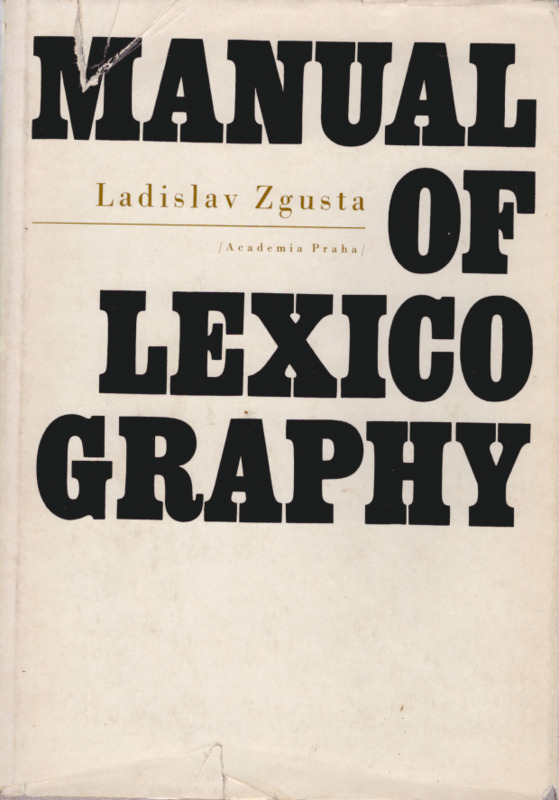
Manual of Lexicography
This book by Ladislav Zgusta is the first comprehensive treatise on the theory and methodology of lexicography, considered to be one of the best introductions and practical guides to lexicographic principles, types of dictionaries, methods of compiling, and planning.
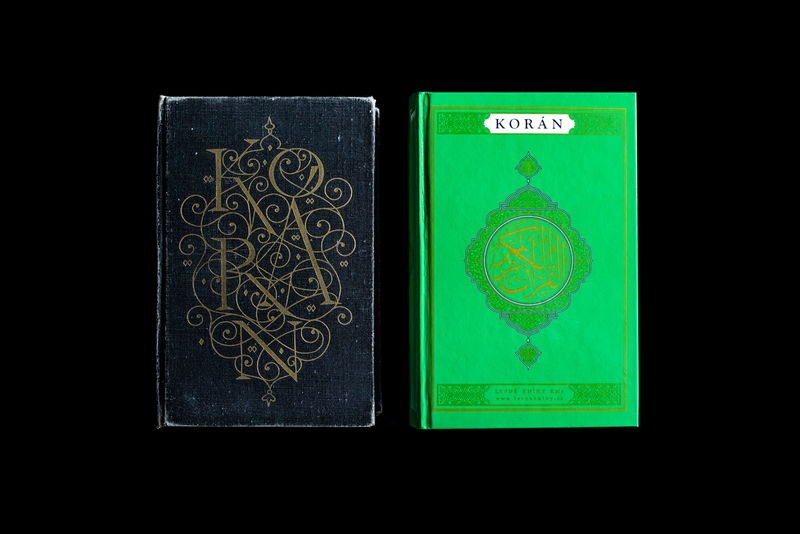
Ivan Hrbek’s Translation of Quran
One of the most prolific Arabic historians and translators is the Czech orientalist, Ivan Hrbek translated the Quran in 1972, and two further editions were made in 1991 and 2000. This translation includes an introductory study, commentary, extensive notes, bibliography, index, concordance, an afterword, and explanatory notes spanning 280 pages. In his translation, he meticulously organized the surahs of the Koran into distinct chronological periods based on their revelation order. Ivan Hrbek's translation remains the preferred choice for Czech readers and is widely regarded as one of the most precise Czech translations of the sacred Muslim text.
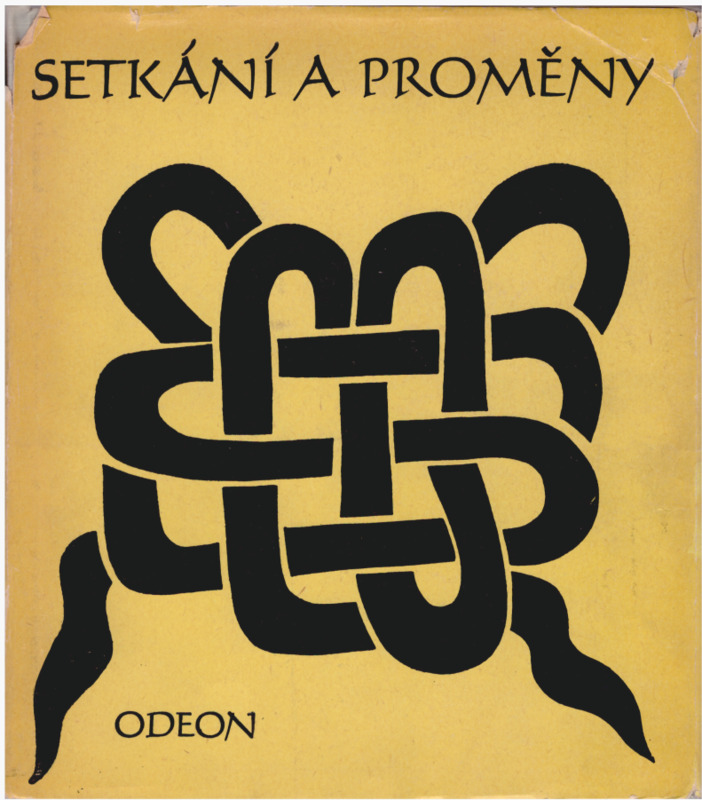
Setkání a proměny
Orientalists Dušan Zbavitel, Zlata Černá, Miroslav Novák, Věra Kubíčková, and Ludmila Motalováá collaborated on this scholarly work on modern literature in Asia. In this essay on the development of contemporary literature in Asia, the writers attempt to identify the traits that most distinguish a number of Asian literary genres at a time when they were beginning to interact more closely with Western, particularly European, culture. In Persian, Bengali, Chinese, Japanese, and Armenian literature, the authors have adeptly observed interactions and forms of adaptation.
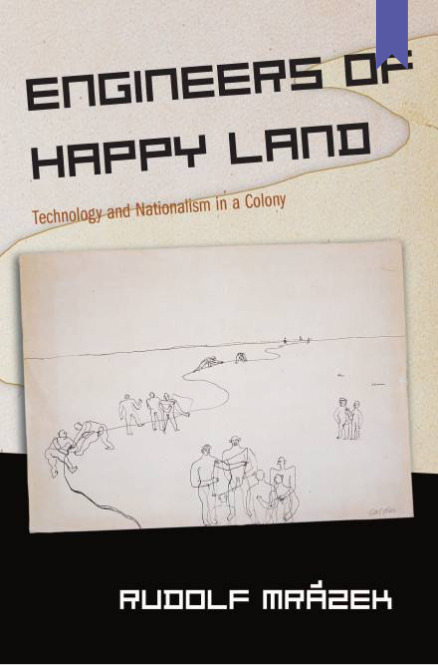
Engineers of Happy Land: Technology and Nationalism in a Colony
This book of Rudolf Mrázek is a distinctive portrayal of the late colonial period in the Netherlands East Indies, now known as Indonesia today. Mrázek introduces a novel approach to discussing themes such as freedom, colonialism, nationalism, literature, revolution, and human behavior within this context. Drawing upon a meticulous examination of historical records, encompassing both poetic expressions and statistical data, this book introduces a novel approach to discussing themes such as freedom, colonialism, nationalism, literature, revolution, and human behavior within this context.
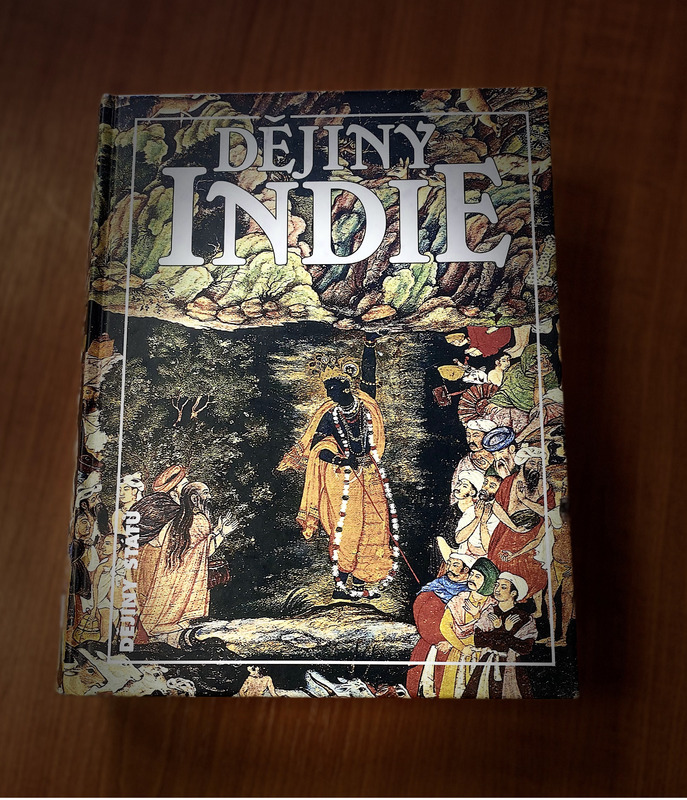
Dějiny Indie
This book represents a collaborative endeavor involving a team of esteemed Czech Indologists from the Oriental Institute and active faculties at Charles University, under the leadership of Indologist Dr. Jaroslav Strnad. The group of scholars undertook a gargantuan task of bringing the history of India to readers tracing the history from the very beginnings, when the latest archaeological research pushes the dating of the first settlements ever deeper into the past, they focus on the period of the emergence of Buddhism, which currently influences the thinking of people in traditionally Christian countries to an unprecedented extent. The authors mapped the first state formations, powerful kingdoms dynasty, notes the emergence of the caste system and the influence of Muslim rulers. The book presents modern history in detail, which is permanently marked by English colonization and the struggle of Indians against foreign domination, but also by the mutual rivalry between Indians and non-Indians, the creation of the states of Pakistan and Bangladesh, accompanied by permanent conflicts. The individual parts were written by experts who deal with the given issue as part of their professional activity at the highest possible level, both based on scientific and pedagogical activity of India. it also became an authoritative reference of many pilgrims and travellers seeking knowledge, adventure or another way of life. This scholarly work has been awarded the 2003 Josef Hlávka Prize for the Humanities.
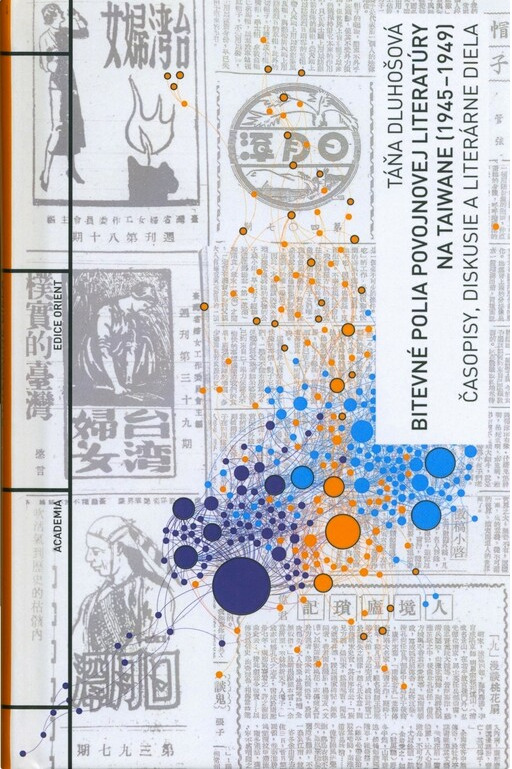
Bitevné polia povojnovej literatúry na Taiwane (1945-1949) : časopisy, diskusie a literárne diela
This book delves into the intricate landscape of Taiwanese literature during a transformative period from 1945 to 1949, marked by significant political, cultural, and social shifts following the conclusion of World War II. Employing Pierre Bourdieu's concept of the literary field, Táňa Dluhošová shares her understanding on Taiwanese literature, viewing it as a multifaceted structure embedded in the contexts of both Japanese and Chinese cultures, driven by diverse actors with varying motivations. The analytical section of the book is divided into two segments, drawing inspiration from the methodologies of Italian literary scholar Franco Moretti. The first section, known as Distant Reading, utilizes quantitative methods to elucidate the structural dynamics and transformations within the literary domain. The second section, Close Reading, delves into the literary styles of different groups that have actively participated in the Taiwanese literary landscape. Through this comprehensive exploration, the book provides readers with a profound understanding of how literature in Taiwan evolved and adapted amidst the backdrop of significant historical changes and cultural influences.
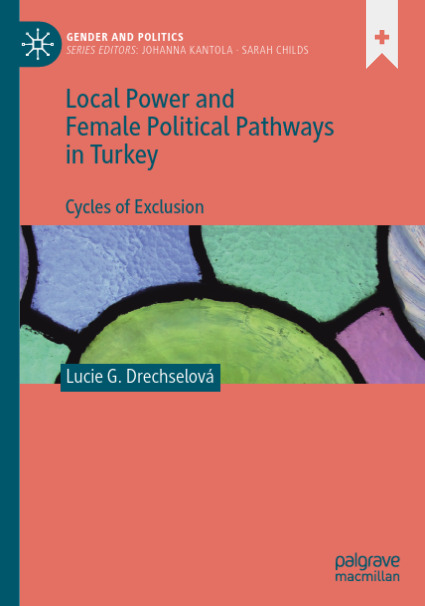
Local Power and Female Political Pathways in Turkey: Cycles of Exclusion
This book by Lucie Drechselová addresses the issue of the limited presence of women in contemporary Turkish local politics. It examines the intermediary level of politics, specifically the representation of political parties in municipalities, employing a dual approach that distinguishes among different political parties (AKP, CHP, MHP, and the pro-Kurdish HDP & DBP) as well as various cities (Izmir, Trabzon, and Diyarbakır). The study engages in a productive dialogue between the Anglo-American body of literature in political sociology and French research in the domains of mobilization sociology, political elites, and institutional analysis. Throughout the monograph, a gendered perspective permeates the analysis. The research findings are drawn from fieldwork conducted in 2014, 2015, and 2016 in Izmir, Trabzon, and Diyarbakır, involving ethnographic observations and semi-structured interviews with two hundred female municipal councilors and women holding positions within political parties. By conceptualizing political parties as diverse entities, the study provides insights into the interactions that occur within party hierarchies. The study also questions the artificial division between the "local" and the "national" by examining the role of women in candidate selection processes. Across the chapters, it becomes evident that women's profiles and political trajectories are intricately tied to the mechanisms through which they gain electoral mandates, influencing how they fulfill their roles as elected representatives. The distinct ethos of each political party tends to favor specific individual and collective strategies over others. In conclusion, the monograph underscores that for a comprehensive understanding of women's local representation, the criteria associated with political parties hold greater explanatory power than local configurations alone.
